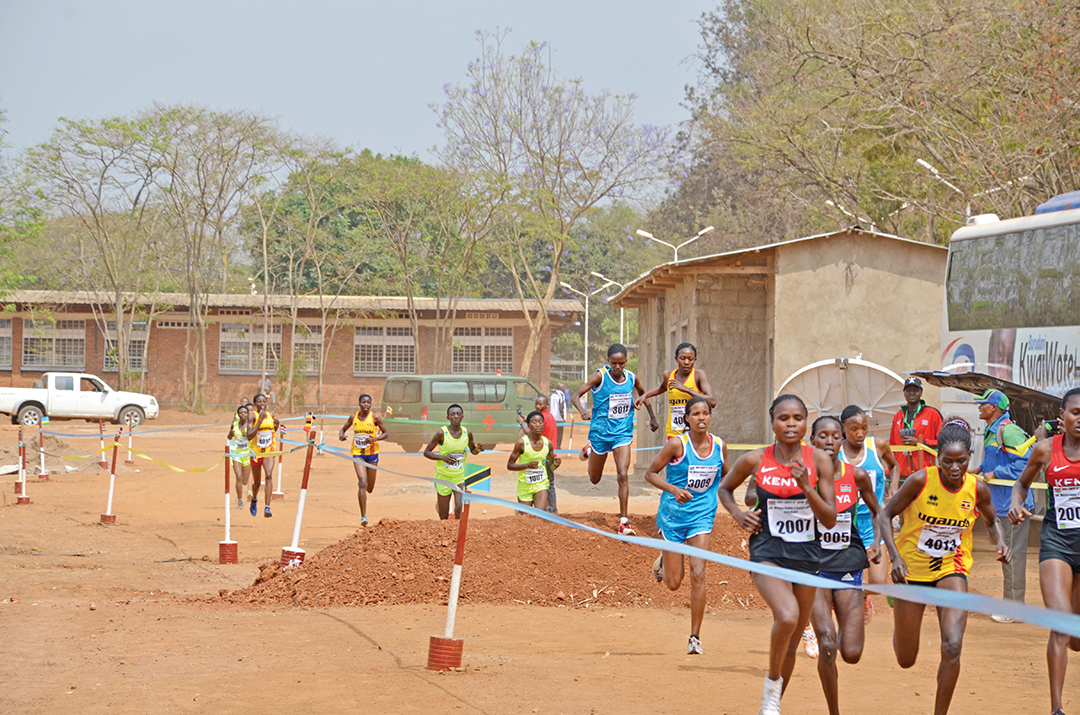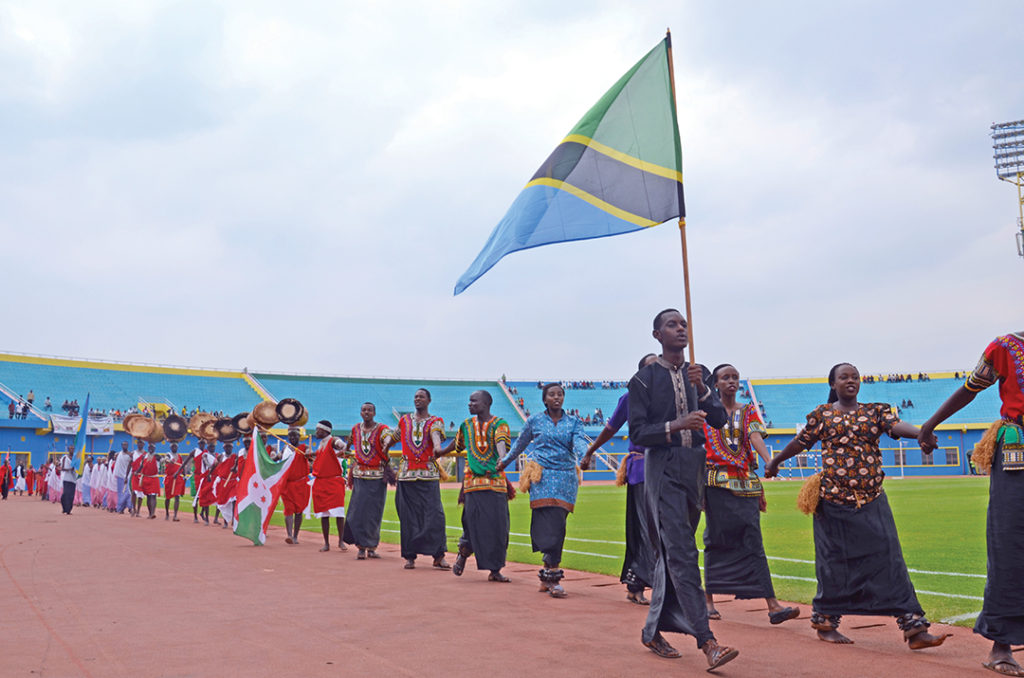The annual East African Community event has become a source of pride and bragging rights for participating countries
ADF STAFF | Photos by RWANDA DEFENCE FORCE
More than 500 participants gathered in Kigali, Rwanda, in August 2016 for the 10th edition of the East African Community Military Games with the theme, “One people, one destiny.”
Military athletes from Kenya, Rwanda, Tanzania and Uganda joined in the games. Burundi had planned to participate, but withdrew, saying it had not had enough time to prepare its teams. Burundians bearing their national flag attended the games in a show of support.
Rwandan Gen. Patrick Nyamvumba, speaking for the host country, said the goal of the games was to build camaraderie among the competing nations. Spectators were allowed to attend all events for free.
“Cooperation has already brought good results, not only in sports, but also in regional security, where such cooperation has helped in building peace,” he told The New Times of Rwanda.
The games, officially known as the East African Community Military Games and Cultural Event, have become a source of national pride and bragging rights among participating countries. On the eve of the 2016 games, Tanzanian officials presented their team with the national flag in Dar es Salaam in advance of the two-week event.
“Military teams must set a benchmark for others to follow,” Issa Nassoro of the Tanzanian delegation told Tanzania’s Daily News. “You must demonstrate the technical ability to learn your opponents’ weaknesses and destroy them.

“We cannot entertain the notion of participation,” he said. “We must compete and win for Tanzanians; this is why you have been given the national flag.”
He told his team that athletes must maintain discipline, observe game rules, and practice teamwork and fair play, “because sports are all about friendship.”
The four countries competed in football, team handball, women’s netball, cross-country running and basketball. Netball is similar to basketball, but it has seven players on each side instead of five. Netball allows only passing and no dribbling, and the goal has no backboard.
The games are not always the same. In previous events, boxing often was included, and basketball was excluded.
Kenya was the biggest winner, with gold medals in football, team handball, men’s cross-country and women’s cross-country. Rwanda won the gold medal in basketball, and Tanzania won the netball gold medal. In the 2015 games in Kampala, Uganda, the big winner was Rwanda, with three gold medals.
In all, the Kenyan military teams won four gold medals, three silver and three bronze. Rwanda came in second place, and Tanzania finished third in the overall rankings. Kenya took individual honors for best goalkeepers in handball and football, and it had the top scorers in handball and basketball.
The Kenyan football team in particular has a national following and is called the Ulinzi Stars, ulinzi being the Swahili word for “protection.” The team is composed of athletes from the country’s Army, Navy and Air Force.
Kenyan Maj. Gen. Samuel Nandwa told The Star of Kenya that the games gave athletes from the four countries a chance to interact and share ideas.

“The event certainly helped foster solidarity and esprit de corps among the East African Community and partner states’ defense forces,” he said.
The games have been rotating among countries since 2005, when the first event was held in Kampala. They are organized according to the EAC Protocol on Cooperation in Defence Affairs. It promotes visits among member countries and the exchange of information, which include sports competitions and cultural exchange among the armed forces of partner nations. The site for the next games was to be announced in early 2017.
The 2016 games in Rwanda coincided with a major auto endurance race, the Mountain Gorilla Rally, which kicked off at Amahoro Stadium in Kigali. Twenty-eight cars from around the world competed.
The secretary-general of the East African Community, Liberat Mfumukeko, said the games symbolize something larger than just an athletic competition.
“It bears a great symbolic significance having regard to the broader goals and vision of a competitive, prosperous and united East Africa,” he said, adding that “when our common citizens watch these events and perceive that our defense forces are working together and engage in friendly activities that project mutual trust and confidence, they inevitably garner higher levels of confidence in the East African Community project at both economic and political dimensions.”
About the East African Community
ADF STAFF
The East African Community (EAC) is a regional intergovernmental organization that includes Burundi, Kenya, Rwanda, Tanzania and Uganda, with headquarters in Arusha, Tanzania. South Sudan officially joined the group in April 2016, but its participation has been limited so far. The world’s newest country is still dealing with internal turmoil.
The EAC has a combined population of 132 million people and a land area of 2.47 million square kilometers. It aims to widen and deepen cooperation among member countries and other regional economic communities on the continent.
The Treaty for Establishment of the East African Community was signed on November 30, 1999, and took effect on July 7, 2000, after ratification by its three original partner states — Kenya, Tanzania and Uganda. Rwanda and Burundi agreed to the treaty in June 2007 and became full members the next month.
The goals have included a customs union, a common market and a monetary union. The EAC ultimately would like to establish a Political Federation of the East African States.

